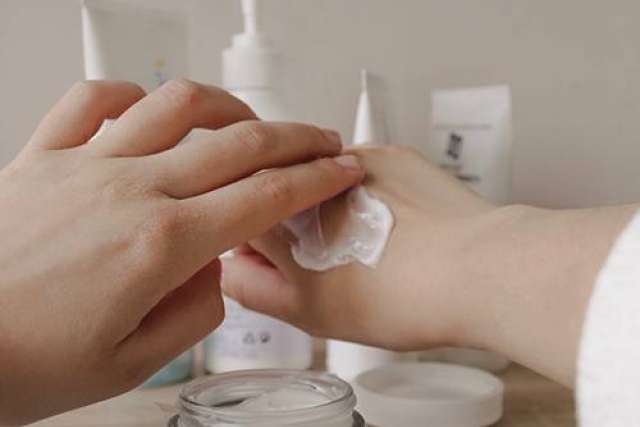More people are upping their hand washing game now that the CDC and health officials have emphasized that regular hand washing is imperative to helping curb the spread of COVID-19.
But there’s one step we all tend to forget after washing our hands or applying hand sanitizer – that critical layer of hand cream. Ironically, by over-washing our skin, we can develop dry cracks in the skin, giving bacteria an entry point into our bodies.
Sara Hogan, MD, a dermatologist at UCLA Medical Center, Santa Monica, shares some best practices on how to treat signs of over-washing like pain, redness, flaking and itching.
Why is handwashing so harsh on our skin?
The outermost layer of our skin is composed of oils and wax, and it acts as both a shield from the outside and a guard that maintains natural moisture in the skin. This natural barrier is broken down by the suds created by soap while washing hands, which does not discriminate between unwanted oil, germs, debris and natural oils in the skin. Not applying hand cream can lead to dryness, redness, itching, flaking, discomfort and in severe cases, cracks in the skin. Those with preexisting dermatologic conditions like eczema can experience worsening symptoms.
How should we wash our hands to avoid skin dryness?
Apply enough mild, fragrance-free soap to remove dirt, but avoid using so much that it creates a thick lather—this washes away natural oils. Wash with warm, not hot water, for at least 20 seconds, patting your hands dry with a towel. Once your hands are dry, apply a moisturizer immediately. Keep small travel sizes of creams in purse, gym bag, and at your work desk to make sure it is within reach.
Are there any ingredients people should avoid when their skin is chapped?
Products that contain fragrance can be irritating to chapped, sensitive skin. Creams and ointments are better than lotions. Hand sanitizers with too much alcohol can be drying to chapped skin. You can try a hand sanitizer with a moisturizing base, just know that it will not be as effective in killing viruses.
Are there common misconceptions about what to look for in hand creams?
Use hand ointment or cream instead of a lotion as these are more effective. Petrolatum (Vaseline) is still the most effective moisturizer out there.
Are there other treatments besides hands creams that people should consider?
At nighttime before going to bed, apply thick moisturizer and then cover with cotton gloves to increase absorption. Beauty product junkies can consider a moisturizing mask for hands. These glove-like masks are applied for 20 minutes, then washed off. Consider a humidifier at night—raising the humidity level in a room can help dry skin.



